Unless you’ve also been living under leaf litter, in the dank reaches of a shady forest, you surely know that the mushroom revolution is upon us. Foraging is all anyone in the food world can talk about, as more and more people take part in sourcing their own ingredients; psilocybin mushrooms are at the forefront of medical research while also racing toward legalization; and non-psychedelic, medicinal mushrooms are being added to everything from hot chocolate to face cream. Plus you’ve got a million Steve Bramuccis at every party trying to bend your ear to the joys of microdosing (I promise to back off if I see you roll your eyes at the phrase “neural flexibility”).
Yes, the mushroom boom very is real. Interest in medicinal, edible, and psychedelic mushrooms is spiking in a way that is both measurable and easily perceptible. Instagram has a whole mushroom hunting community now. Reddit has multiple forums dedicated to the subject. Joe Rogan discusses his microdosing often. Shows feature psilocybin storylines or themes that would have been taboo (or played with little nuance) until quite recently. And Coach Beard from Ted Lasso is literally obsessed.
Perhaps the most notable moment of mushrooms permeating pop culture over the course of the pandemic has been the reception given the documentary Fantastic Fungi. The Brie Larson-narrated film was recently given a new life after being licensed by Netlfix and has become Google Meets discussion fodder in virtual workplaces worldwide.
The documentary is based heavily on the work of mushroom rock god Paul Stamets — who has appeared on Rogan, spoken at EDM festivals, and is truly the lion’s mane of the fungal jungle. It’s directed by Louie Schwartzberg, a genuine mushroom aficionado and a pioneer of timelapse filming techniques, who captures the beauty and magic of his subject matter (both its edible and hallucinogenic varieties) with an inventive approach and a loving eye. Together, they tell a story that acts as a sort of Trojan Horse — hooking audiences by explaining the mind-boggling complexity of mycelial networks and the importance of fungi in a thriving ecosystem, before shifting to psilocybin and the massive amounts of research and anecdotal evidence that point to it being what the FDA has labeled a “breakthrough drug.”
With Fantastic Fungi drawing new voices into the conversation around mushrooms, Stamets and Schwartzberg have planned the Fantastic Fungi Global Summit — a virtual gathering of some of the most well-regarded names in the field, along with mushroom-friendly musicians, actors, spiritual leaders, and artists. I spoke to the duo on the eve of the summit about how all mushrooms shape our world and how psilocybin, in specific, has the potential to completely reframe it.
Our conversation is below, edited for brevity.
Let’s get started with the beauty of the movie, because I think that was a really active choice — making sure that people felt the magic, first of all, that Paul has always talked about in mushrooms but also just that we see in the natural world. What was the visual language that you wanted to share with people to make sure they could understand, for instance, mycelium networks, throughout this film?
Louie: The beauty — I’ve always been saying this that is what I’ve learned from 40 years of filming, is that beauty is nature’s tool for survival. Because we protect what we love. So I think it’s enabled DNA to move forward and life to move forward. It’s intrinsic to the films that I make. And it’s not a superficial, glossy exterior. It’s really inherent to the story, because of how it engages your emotions.
It certainly encourages reproduction, throughout all species. Whether it’s pollinators or animals. It’s a language that makes life go forward.
Paul: What I would like to add is… think about it — people go for a walk in the woods, okay? It’s nice to go for a walk in the woods. Good exercise. You’re out in nature. Then they get turned on to mushrooms and they suddenly see these mushrooms everywhere. So often what I hear is, “How could I not see them before? They’re all over the place. And moreover, there are so many colors and shapes and forms.” So, formerly, they would just go for a walk in the woods. And secondarily, now they have an interest in finding mushrooms as they walk in the woods. That changes until, primarily, their motivation for walking in the woods is finding mushrooms. And it sort of elevates this whole idea of hiding in plain view these majestic forms and expressions of nature that are so colorful, so exciting.
You could take some of them home and eat them. You could engage your kids. It’s like an Easter egg hunt for adults and children. So it brings the family together on this shared adventure, and you have this “eureka!” experience. Now, it’s a really important thing. How many of us have a eureka experience? Not that often. That eureka experience biochemically creates an endorphin rush and it becomes a little bit addictive. You’re so excited, and you’re so excited to be out with your family with a shared joy of your five-year-old son or your daughter finding some mushrooms, and you rejoice with them.
I think it’s very primal, and I think it hits these very fundamental receptor sites of what excites us as a community. And this film very eloquently brought that into front view.
It absolutely did. And it validated those who were already on this wave.
Louie: The fact of the matter is, 99% of the people watching movies and films are not hunting mushrooms. But they see it sort of like it’s almost cheating in a way because the movie brings it to the forefront without them having to do the exercise. But now they see them everywhere. Mushroooms have become a zeitgeist of our time. There is a mycological revolution sweeping the planet — largely sparked by Paul — that brought this into the forefront during these COVID times where you cannot be indoors. You want to be outdoors, and this is a shared purpose and a way of sharing joy amongst your family.
Paul: That’s why babies are cute and puppies are cute and kittens are cute. We want to protect life.
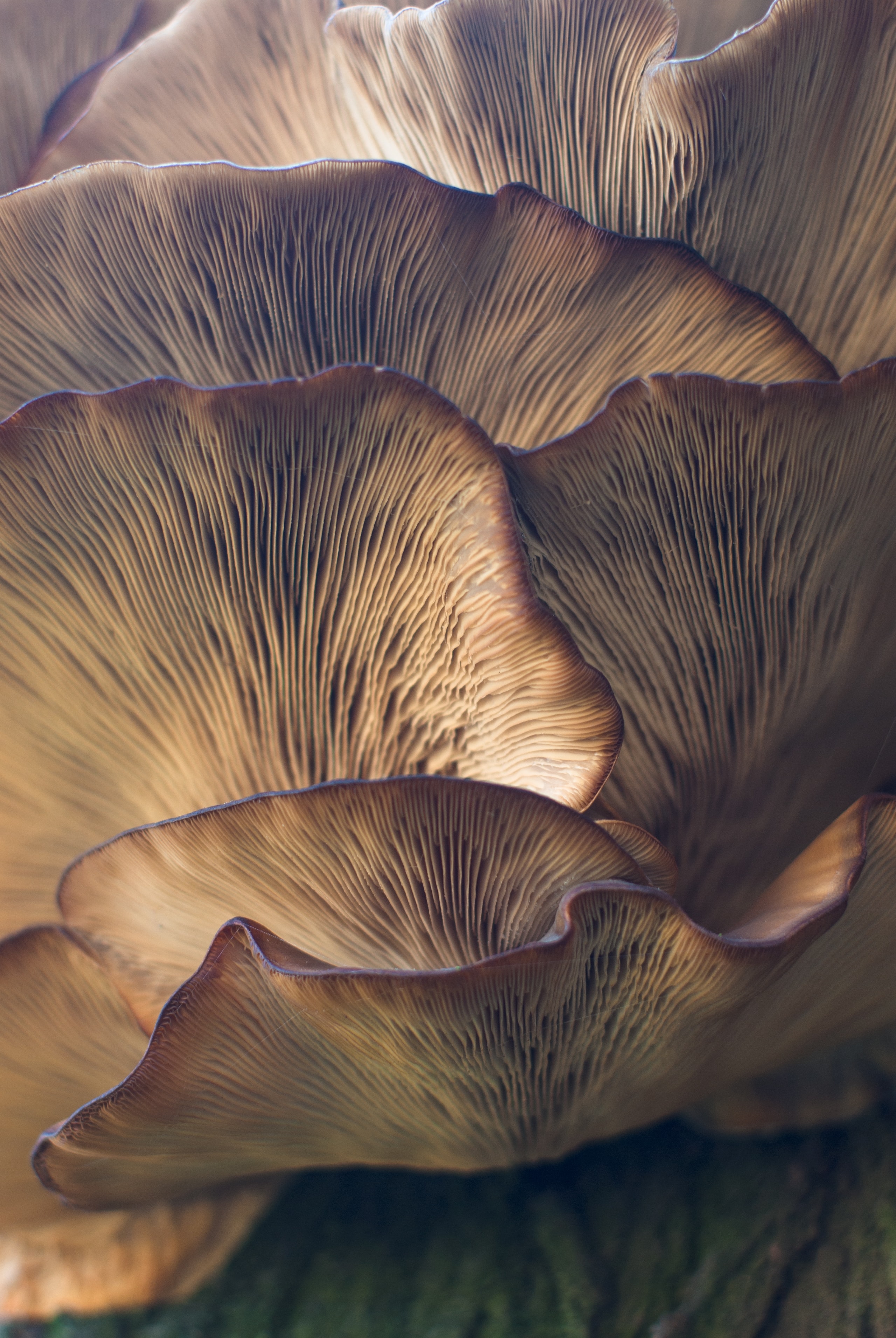
I feel like the growing interest in mushrooms — and the doc did such a good job with this — helps people reframe our notions of life and death as somehow permanent. You go into a forest and you see fruiting bodies coming off of a theoretically dead tree and you realize that the dead tree is alive. I remember the artist Andy Goldsworthy once talked about how rocks were alive in some sense because they’re turning from sand to stone to sand. That may not be true. That may be more metaphorical. But obviously, with the forest, it’s very much true.
Louie: Well, I mean Paul really had beautiful words. It’s not the end of life. It would be the beginning of life. But 20, 30 years ago I shot that mouse trap rotting. And who would think that observing that was actually very beautiful. Watching it decompose. Watching the bones separate. Watching new life come through the ground.
I think it’s important what you’re saying. It does change … It changes your spiritual outlook and your worldview. And if you do that, you lose the fear of dying — which is another important part of the movie with John Hopkins and the people taking psychedelics — is that they have this physical-mystical experience and they lose their fear of dying. Why should we have this fear of dying when perhaps we can accept it as feeling the wonders of the universe?
I love the choice to have Brie Larson be the voice. It’s funny because I get PR emails and things like that and they say “narrated by.” Most documentaries have a celebrity narrator at this point, so I didn’t really think much of it. But when I saw the movie and I realized she was literally voicing the mushrooms themselves. How did that choice come about to kind of let her articulate the point of view of mycelium and mushroom and fungi?
Louie: The stories that I like to tell are more the feminine side of nature, not the macho stories that you’re going to find on Discovery or BBC. Kill or be killed; survival of the fittest. That creates drama and anxiety. But what I find, and I’m sure Paul does as well, what is more spectacular are the millions upon billions of interactions that are going on that we’re not aware of.
Before I did Fantastic Fungi, I did Wings of Life — where I had Meryl Streep be the voice of a flower seducing the pollinators. So I think it’s cool to give nature a voice. Brie Larson had yet to become a superhero for Marvel when she agreed to work with me on it. That was way before that occurred. But when you think about it, how beautiful is it that she represents such a feminine side of nature but she’s also a superhero?
In the movie, what’s really cool is she’s really having a dialogue with Paul in that she sort of is the voice of nature and Paul is the voice of the enlightened, scientific mind trying to understand the fungi world and the cycle of life. But they’re actually having a bit of a back and forth, which is subtle but I think creates a really engaging dynamic narrative dynamic.
So Paul… now I’m going to do the thing that every — I would imagine that so many of the people interviewing you do. I feel like everyone wants to hold off a little bit, and you probably anticipate it, but before long can you sense people getting ready to turn the interview to the talk of psychedelics?
Paul: Well, it’s hard to ignore the amazing avalanche of scientific articles and peer review journals validated by the FDA occurring in reputable medical journals showing that psilocybin is one of the most profoundly beneficial therapeutic drugs with the lowest toxicity index of practically any drug used in psychotherapy. That is not an exaggeration, folks. That is not an exaggeration. This is a statement of fact.
So many of these anti-depressant drugs mollify or dumb you down. They down-regulate emotional response and connectivity. The use of the psilocybe mushrooms is coming at a time-critical point in medicine. The massive stressors that our society is experiencing internationally due to the COVID pandemic just further support the urgent need for these breakthrough medicines.
And that’s what the FDA has called psilocybin — a breakthrough medicine. This is why there are over 67 clinical [currently 76] trials listing psilocybin at clinicaltrials.gov. And think about this: they have to go through the institutional review boards, called IRBs, that are curated by physicians and scientists to address primarily three subjects. One, does it address an urgent need that is not being addressed currently by conventional or existing medicines? Two, is it harm reduction? Is it known or can be shown that it’s unlikely to cause you harm? And three is scalability. Or is it medicine that is so expensive that it can’t be scaled?
All of those three boxes are checked. Then the fourth one was “is there good scientific evidence already published and supported?” So those are the four major criteria that I’m aware of that the IRB boards … And when you consider that 67 of them, and maybe 68 as of today, have passed the litmus test, then I think it’s a profound medicine of our times.
It’s staggering.
Thank goodness that our cultural intelligence, our scientific intelligence, has escaped the gravitational pull of Tim Leary and the 1960s and the war on drugs, which was so misdirected. That now these substances like psilocybin can be looked at scientifically — with scientific objectivity – and based on medical intelligence, not on political convenience.
I think we’re in a new dawn in a new era of medicine.
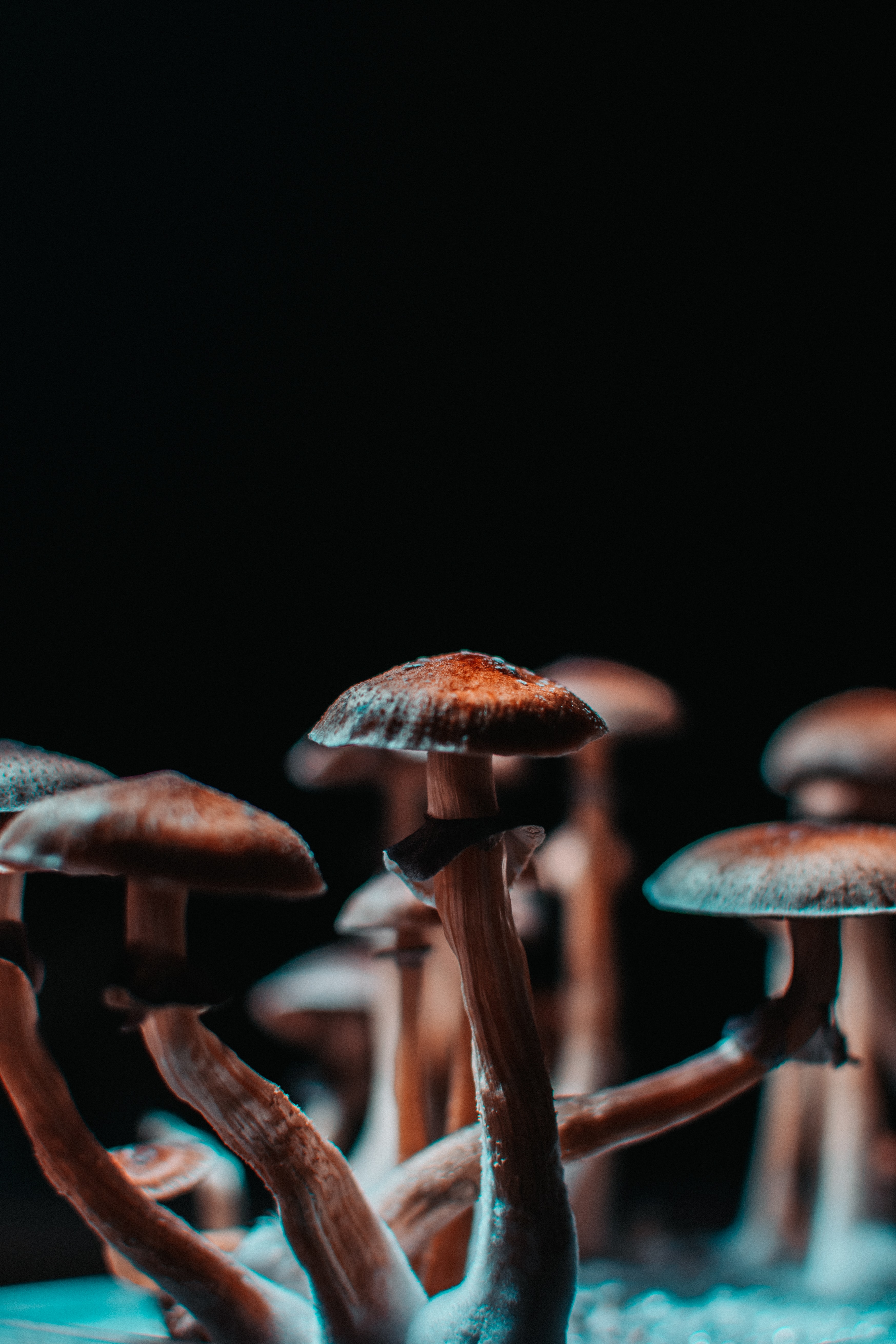
I’m actually part of your Microdose.me study. Before you started that study, my own microdosing was just kind of blind and figuring out dosage on the fly. But one thing I learned through you that I think surprises a lot of people that maybe you can unpack a little bit is that with microdosing — a lot of the positive effects have actually been found to be … which is reverse intuitive, have found to be bigger, or better rather, when there is no effect felt on the user. That a microdose is perhaps most effective on a subliminal level.
Can you unpack and explain that just a little bit for people who are interested in microdosing?
Paul: Well, when you talk about depression and anxiety, these are subjective. Psychiatrists are trying to help a patient to feel better and escape their depression. How do you feel? So the microdosing and the study we have right now that has just passed peer review and is soon to be published in a major scientific publication of the highest reputation. The kind that when this interview is out I can tell you what the journal is.
But we surveyed over 8,000 individuals. Surprisingly, more than 4,000 people were not microdosers. We were just shocked. They wanted to have a baseline of known cognitive, emotional, and psychological health. So we had a very good balance between microdosers and non-microdosers. The people who microdose, this is open-label, right? People know that this is not a placebo, double-blind control study. This is an observational study that the people are reporting through microdosing what happens after four weeks. Statistically, that’s a highly significant reduction in depression and anxiety — higher than that any other conventional drug.
Any pharmaceutical company would leap for joy to see how specifically significant these results are.
So that is one aspect to it. But what we have been looking at is more of the neurophysiological benefits. And what we’re finding is that beyond the subjective, “How do you feel,” we’re able to demonstrate now neurophysiological benefits that show that microdosing improves the health of your neurological landscape even through the central nervous system.
I think this is the beginning of a whole new chapter in medical history.
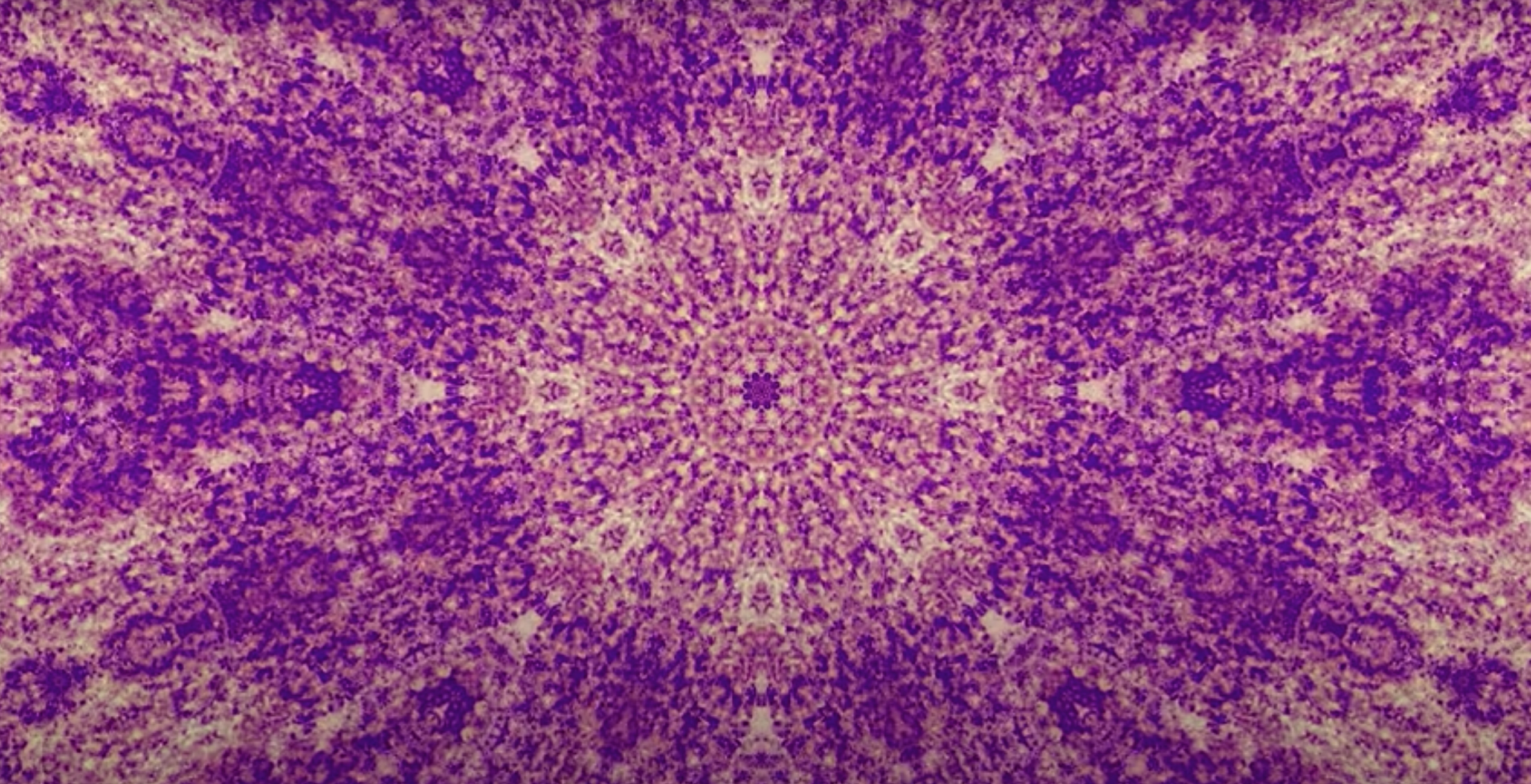
So Louie, just to add to that, I’m also a big believer in the macro-dose — the “hero dose” of psilocybin. Obviously, you were going to be touching on psilocybin in the movie. The psychedelic experience has been portrayed to all different levels in film and television, and quite often poorly or quite often focusing on paranoia aspects, et cetera.
What were the conversations you and Paul had around how to portray it? Or just kind of the visual aspects of the psychedelic experience. What did you guys talk through about that?
Louie: Well, I don’t recall us having many conversations about it because it’s kind of a personal experience we have. What I did was I had some incredible content that I have in my library, which I’ve always been filming these patterns and rhythms of nature, which I think is a gateway to your soul, these universal rhythms and patterns.
Then I was able to then blend it into sort of a mandala pattern that I felt was very organic and similar to what I had experienced in my life. And I’ve had a lot of people come up to me and say, “Wow, that’s the best example I’ve ever seen of a psychedelic experience.”
Paul, how did you feel about how psilocybin has been represented in the past in film and TV? And then how do you feel about how it was represented here?
Paul: Well, that’s a great question, because that’s where I think Louie’s film sets a new standard — showing more accurately the reality of psilocybin mushroom use. The absolute academic bankruptcy of these other films that try to jump onto the stereotypical reaction of people saying, “shrooms.” It’s not happening as much, but all of us have this experience. You mention mushrooms with a group of friends or at a social event who are not experienced. You bring up the subject, and very quickly, from my experience, 90% of the time somebody will make a stupid joke, someone will sneer, someone will say maybe like, “far out, man,” and they’ll totally discount this.
What Louis did is a total aikido move. I didn’t tell him to do this. No one told him to do this. Louie set the stage. First talk about culinary mushrooms and the history of mushrooms and their evolution. And then he was able to set a foundation of common wisdom, commonly accepted wisdom, based on cultural and scientifically backed themes, sub-themes, and then brings in psilocybin.
So he set this stage intellectually and emotionally and made that connection with the audience. And then he brings in this subject. Had Louie done this at the beginning, this movie would not have been successful.
I think that’s very true.
Louie: One other quick note about the psychedelic visualization. People do say when they’re on a journey, it’s like a filter is removed and you’re seeing trees or mountains breathing and moving. You’re actually maybe seeing what pure energy really looks like. That’s what I love to film. I can see that through the camera — like ripples on the ocean or reflections on the water and that pattern, that is a universal pattern. That’s what I use. And I kind of layer it and manipulate it. But the motion and the energy is medicine. And it’s one form of medicine that can heal your soul.
There are studies that have shown obviously that being in nature is the perfect combination of a psychedelic journey. That’s why I’m excited about doing this because we’re bringing the sacred visual medicine of nature into the home environment. And not just a shot of a tree or a river but seeing it through the altered perception of time and scale, which automatically gets the brain in the position to let go from the pre-conceived notions of the human point of view.
Is there something that you want to say to the person reading this who is thinking, “Oh this is a wave that I want to be on?” I’m sure you get asked that question a zillion times a week. What do you tell people who are looking to kind of embark in this process?
Paul: I think the take-home message is that it creates emotional intelligence. But I believe it increases intelligence, kindness, and courage. These are fundamental to the health of our society. When you have somebody who has been abused, raped, or a victim of a violent crime, of course, the victim is in the epicenter. But it affects their family. It affects their narration with their neighbors, within the neighborhood.
When that goes out into the cities and all the violence that we see, it’s a shared community of emotions. The opposite of that is that psilocybin can help cure these people fundamentally at the epicenter of this emotional and oftentimes physical tragedy. Then as a result, like a pebble on a pond, is the emanation of ripples of kindness, courage, and increasing emotional intelligence that ripples out through society.
This is a paradigm shift.
I say this now after saying this for a long time, but I say this now with great scientific backing. This is not me saying it or a few other lone rangers that are out there in the wilderness of science saying it. It has become a strong narrative of our time. Yale University, Harvard, Stanford, Johns Hopkins, Imperial College, King’s College. You only have to be mildly inquisitive to have heard about this.
It’s a true paradigm shift that can actually transform society. Which is a vision that people have often had for psychedelics but finally feels viable now.
Louie: One of the things that Paul was talking about was the takeaway from the experience. I would say that the takeaway from the movie, which is something I did not anticipate or have a preconceived idea about, was the fact that looking at the fungal network, we’re looking at this underground network of a shared economy, where information is shared without greed for ecosystems to flourish. That’s a religious mantra. That is nature’s operating instructions.
That’s an actual way that we can rethink the world, right?
It’s actually a rethinking of all of society. It’s a non-hierarchical vision for the world.
Louie: That’s why the forest is a forest, a community. And they’re all caring for each other. You don’t have to have this dog-eat-dog attitude about competition, selfishness, et cetera because we all know whether it’s government or society, any culture, when we all do well, we all also individually do well.
I think we’ve got to use that as a moral compass as we move forward, looking at how human beings cooperate with each other.
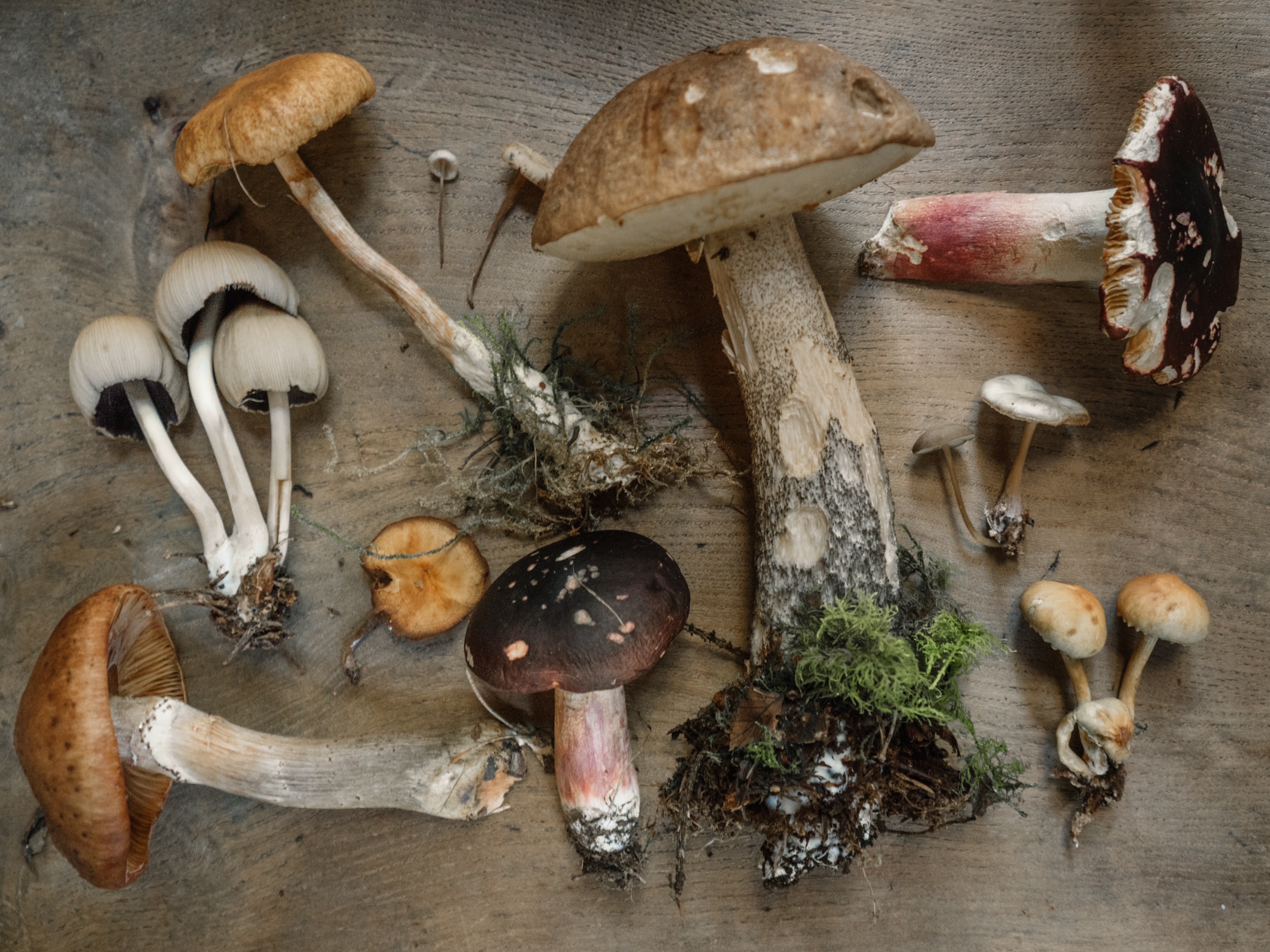
I have one last question. I am sure that taking mushrooms with Paul is on the bucket list of about 100,000 or maybe 200,000 people on this planet. I can’t imagine that too many people get to do it. First of all, I guess Paul, how many times do you hero dose a year? And second of all, did you guys get to have that experience together in preparation for the movie?
Paul: We’re two brothers from separate mothers, okay? So I’m not going to speak to what Louie and my personal experiences are. That’s not right. But I would say to the hundreds of thousands, and to hear it from my perspective, it seems like millions of people want to take psilocybin mushrooms with me. I would just respond with, “You are taking psilocybin mushrooms with me every time you journey.”
This is something that has deeply improved my life, the lives of our community, and our associates. So we’re joining together as one giant consciousness.
That’s about all I feel safe about saying. In terms of my personal use with psilocybin mushrooms, I have said for 30, 40 years, I will never be an apologist for my interest and expertise in psilocybin mushrooms. I have stated that dozens and dozens of times. And I do heroic journeys at least once a year. I oftentimes ask myself why am I not doing this more often?.
Psilocybin mushrooms are anti-addictive by their very nature. This is what is a big “a-ha” moment for so many people not experienced. That these are some of the most anti-addictive of all drugs. And all the other psychotherapeutic drugs have oftentimes, most of them, as far as I know, have an element of addiction and dependency upon them.
The fact that you can have a paradigm-shifting or a therapeutically powerful experience that can improve your life, but you only have to do them once a year. Some people select never to do them again. It has fundamentally changed their psyche to the point that they feel comfortable. They don’t feel diseased or distressed. They feel healed. So once healed, they no longer feel the need for the medicine.
Louie: I know we’re running out of time, Stephen. But for my last comment on that would be that my psychedelic experience early on in my college years definitely influenced my filmmaking. It’s why I became this pioneer of time-lapse — because I realized that this point of view, this narrow point of view of 24 frames per second real-time isn’t the way you experience life. It’s not the way a bee or a redwood tree looks at life.
I know that this isn’t just about the movie for either of you. You have the Fantastic Fungi Global Summit — which is free — coming up from October 15th to 17th. All these massive names from science to self-help to Hollywood…
I hope you will let your audience know to visit Fungiglobalsummit.com where I’ve got Paul and many thought leaders like Deepak Chopra, Andrew Weil from Johns Hopkins. We have conversations about psychedelics, about wellness, about culinary arts… Jason Mraz. Lots of musical performances. And it’s free, and it’s a great way to dig deeper into the subject matter.
There is this movement. And now it’s kind of like “well you’ve seen the movie” — but people want more information. So the summit is going to be an opportunity where I did 50 interviews with 50 of the top voices from the underground of the experts in psychedelics, in medical, in wellness, culinary, arts, and science where we can do a deeper dive.
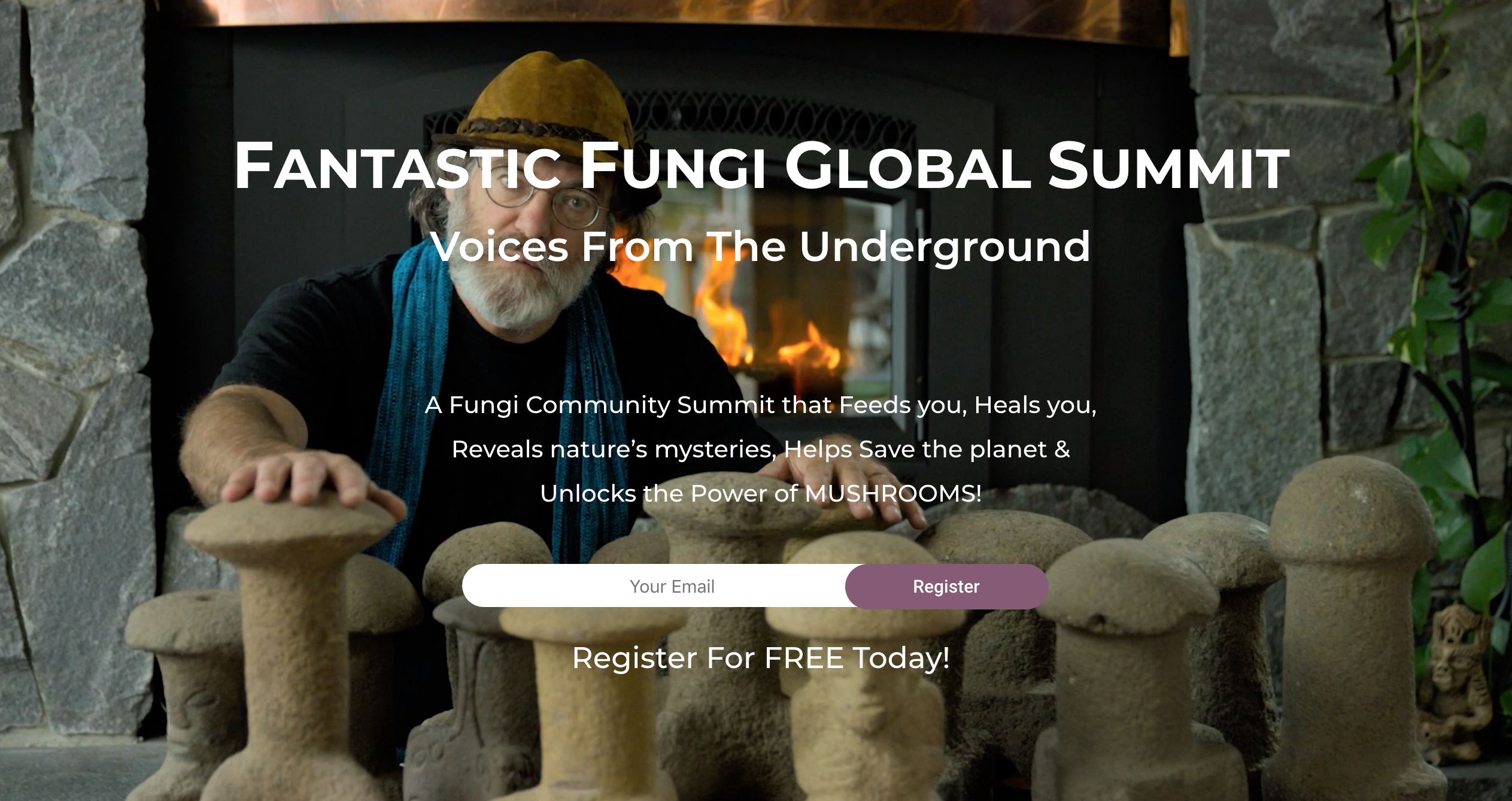
Fantastic Fungi is streaming on Netflix. The Fantastic Fungi Global Summit is free and runs from October 15th-17th online. Steve Bramucci can be found on Instagram.







